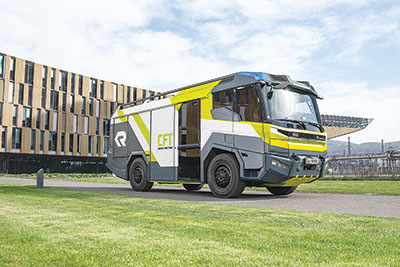The Australian Capital Territory (ACT) Government is partnering with Rosenbauer to work towards an Australian-first Plug-In Hybrid Electric Fire Truck for its emergency services.
The ACT Emergency Services Agency (ESA) will work with Rosenbauer, one of the largest providers of firefighting technology and equipment in the world, to pioneer the engineering of their Concept Fire Truck, to suit Australian fire services.
The development of the Plug-in Hybrid Electric Fire Truck is an important first step towards transitioning to a zero emissions emergency vehicle fleet.
Minister for Advanced Technologies and Space Industries, Mick Gentleman, said, “The partnership between the ACT Government and Rosenbauer will engineer a fire truck that’s far more sustainable than our current fleet while being well designed for our
fire fighters’ needs.
“This is a substantial step that will help move the ACT closer to achieving a zero net greenhouse gas emissions target by 2045. It is another example of ground-breaking technology right here in Canberra, further cementing the ACT as a world leader in innovation and sustainability.”
The Rosenbauer Concept Fire Truck technology offers a fully electric drive with a diesel range extender, capable of carrying an identical inventory to the current ACT Fire and Rescue fleet.
Firefighter safety and comfort would be at the forefront of the design with better use of space and greater crew protection. The vehicle would be ergonomically designed and include a walk in, walk out entry to support firefighters’ knees and backs as they move in and out of the vehicle.
The transition to a single electric fire truck would see a reduction of diesel fuel consumption by approximately 185,000 litres and a reduction of engine oil disposal by approximately 400 litres over a ten year period.
The partnership would help bring this technology to the market and is expected to lead to the first fully operational Plug-in Hybrid Electric Fire truck in the Asia-Pacific region by 2022.

















